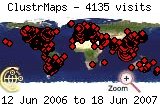
...or พระพรหม Phra Phrom to the Thais, Brahma to the Hindus, 四面佛 (lit. four-faced 'Buddha') to the Chinese, & sii3 ming7 hook8 [1] to the Teochew Chinese.
Long ago, a rich but childless man lived near a drunkard with two children, who insulted him by saying that all his wealth was useless as it couldn't help him & his wife have a child. One day, at a banyan tree beside a river, the rich man prayed for a child at the moment when the sun first entered the sign of Aries. The spirit dwelling within the tree took pity on him, & related his plight to the Pha In (พระอินทร์, Indra), who then ordered a เทพบุตร (male deity) named ธรรมบาล (Dhammabaan) to be born as a son to the rich man & his wife.
The son, named ธรรมบาล กุมาร (Dhammabaan Kumaan - lit. Dhammabaan child), was a genius who understood the language of birds & completed his Traiphet [2] (ไตรเภท) studies by the age of seven. One day, Thao Kabil Phom (ท้าวกบิลพรหม, another name for Pha Phom) challenged the son to answer three riddles [3] within seven days, failing which he would lose his head. If he succeeded, Pha Phom would instead cut off his own head.
Unable to come up with the answers after six days, Dhammaban Kumaan lay under a toddy palm tree, thinking that it was better to die in a secret place than be beheaded. Above him in the tree was an eagles' nest, where a female eagle asked its mate where they would hunt for food the next day. The male eagle replied that they would feed on the corpse of Dhammaban Kumaan, as Pha Phom was going to kill him for not being able to answer the three riddles. It went on to tell the female eagle both the questions & the answers [4], which the boy overheard.
On hearing the correct answers from Dhammaban Kumaan, Pha Phom had to cut off his own head. However, his head would set everything on fire if it touched the ground, cause drought if it touched the air, & dry up the oceans if it touched water. In order to prevent this, he ordered that his head be kept within a cave in Mount Krailaat (เขาไกรลาศ). Once a year, on the day the Sun enters the sign of Aries, it was to be taken out & paraded clockwise around Mount Sumeru on a tray carried by one of his seven daughters. That day would be มหาสงกรานต์ Maha Songkran day, the 13th of April. Each daughter was assigned to a day of the week, & the day on which Maha Songkran fell would determine which daughter would perform the task of carrying her father's head.
To be continued in next post...
- Tones follow this Peng'im system
- Traiphet, or 'three types of knowledge', refers to three of the four Samhitas, the oldest sacred texts (Vedas, or เวท in Thai) of Hinduism - the Rig Veda (คัมภีร์ฤคเวท), Yajur Veda (คัมภีร์ยชุรเวท) & Sama Veda (คัมภีร์สามเวท).
- Where is a person's radiance at dawn? Where is a person's radiance at noon? Where is a person's radiance at dusk?
- At dawn, it is at the face, hence people wash their face at dawn. At noon, it is at the chest, hence people spray scented water on their chest at noon. At dusk, it is at the feet, hence people wash their feet before going to bed.






2 comments:
Eagles don't bulit their nests on palm trees leh... ;-P
found this weird too...but this is a direct translation from the Thai source which says it was a ต้นตาล dton dtaan tree (Borassus flabellifer)...then again, the eagles in the story could discuss Pha Phom's questions...!
Post a Comment